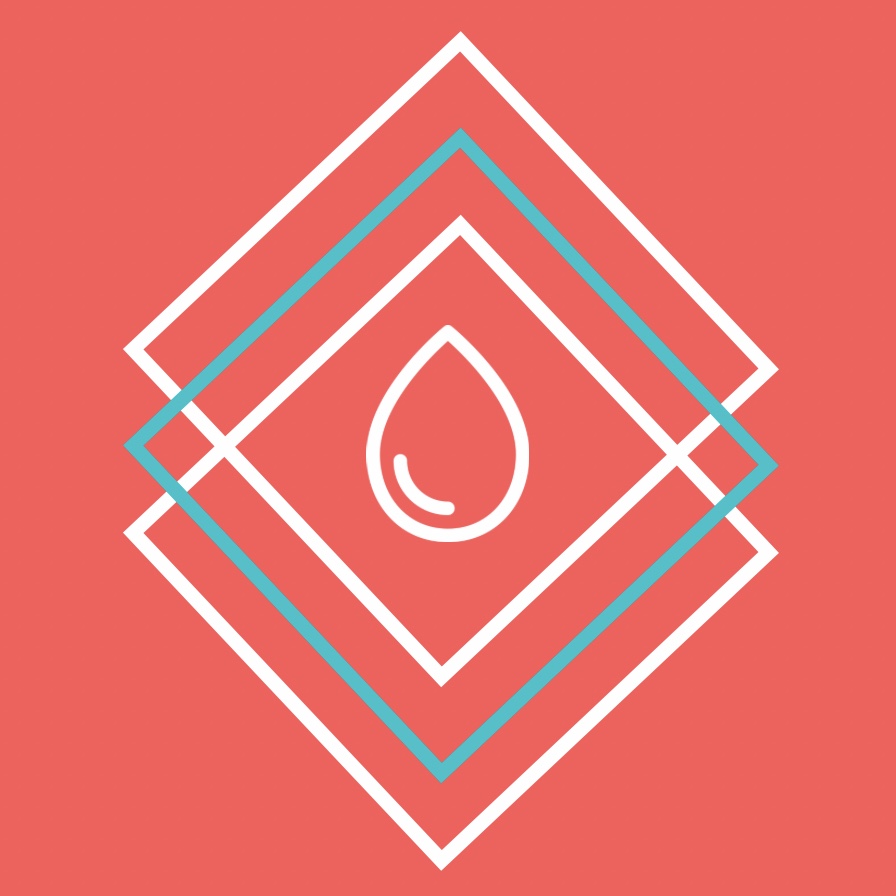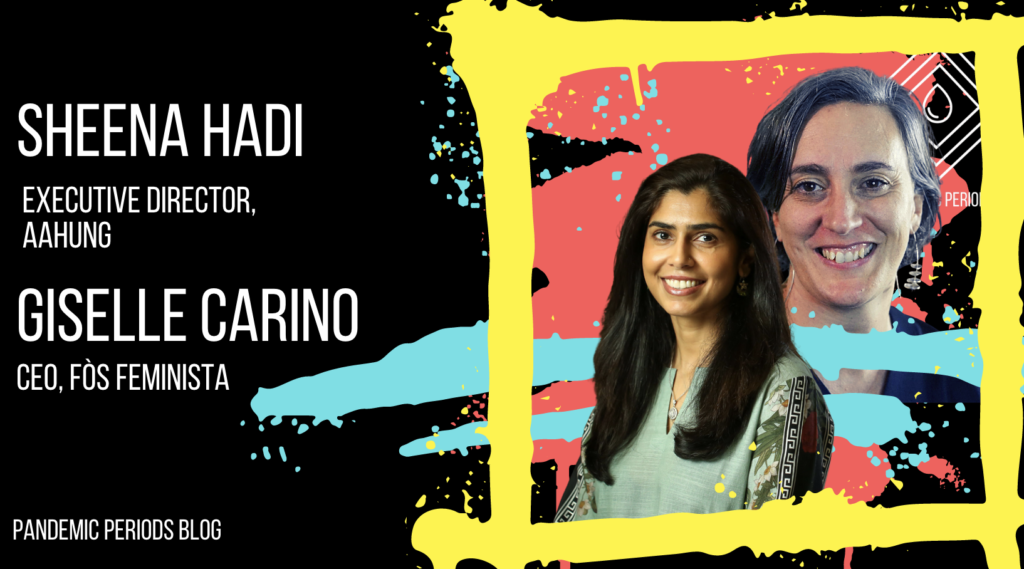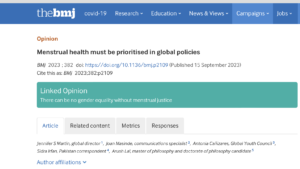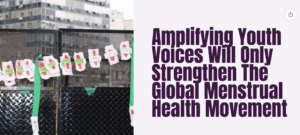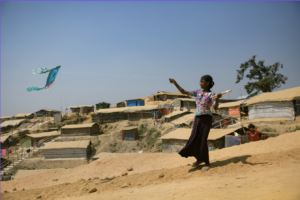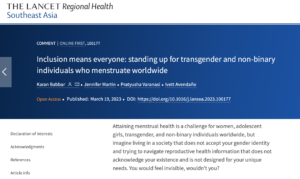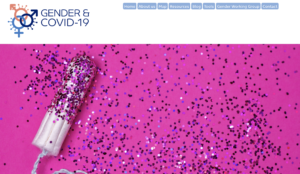For roughly half the world’s population, menstruation is a core issue of bodily autonomy: the right to safety, security, and self-determination over their bodies, including their reproduction. Not only does it shape our reproductive health experiences, but it also impacts our livelihoods and life projects. Yet menstrual health is widely stigmatised and not considered an appropriate public or private discussion topic.
Despite being a common experience that entails well-known shared needs, there’s no universal approach to meeting such needs. It is safe to say that every woman, adolescent girl, or gender-diverse person who menstruates (i.e., menstruate) needs access to education on menstrual health, safe and affordable menstrual products and clean water and soap to manage their periods. However, the way to guarantee each of those needs requires assessing how multiple forms of inequalities affect these people’s lives. Promoting menstrual health and bodily autonomy demands an intersectional approach, a closer look at how economic, social, political, and environmental factors interact and produce experiences of discrimination, oppression, and marginalisation.
In Pakistan, where sexual and reproductive health and rights NGO Aahung is based, girls are sensitised from a young age to understand menstruation as unclean and shameful. The stigma stems from religious-based “purity” notions that deem persons who are menstruating as not clean enough to perform ritual prayers or handle the Quran, for example. The shame around menstruation becomes ingrained and is passed on from generation to generation, with severe implications for how women, adolescent girls, and gender-diverse people who menstruate perceive and relate to their bodies, contraception, reproductive health, and sexuality. Aahung seeks to destigmatise menstruation through our work with life skills-based education in schools and by creating spaces in communities for dialogue about menstrual health and talking about it as a regular part of growing up.
With poverty, inflation, and unemployment soaring in Pakistan, period poverty – the lack of access to information, products, and infrastructure to manage periods, such as toilets with running water and basic sanitation – is often a neglected dimension in the lives of people who menstruate. But its impacts are devastating and can include health problems, such as urinary infections caused by the use of unsanitary materials to manage periods; gender-based violence like forcing people on their periods to stay in enclosed spaces; restrictions on access to school and work; and having to choose between buying food or menstrual products.
International agencies and civil society organisations are trying to tackle period poverty in Pakistan. Still, most of them, particularly the most well-funded ones, are heavily informed by the standard WASH programming, which focuses on expanding people’s access to water, sanitation, and hygiene. When captured by corporate agendas, this kind of approach tends to frame menstruation as an issue of hygiene (read “cleanliness”) rather than health or bodily autonomy while also pushing for menstrual products that are expensive (like disposable sanitary pads) and frowning upon more traditional methods like cloth pads. As a result, this approach to period poverty is mainly inaccessible and reinforces the national stigma around menstruation as “dirty”.
After unprecedented floods inundated one-third of Pakistan in 2022, killing over 1,400 people, displacing more than 33 million, and affecting 8 million women of reproductive age, period poverty gained some visibility. There was rightly a push to distribute menstrual health products as required by the Minimum Initial Services Package for Sexual and Reproductive Health in Crises. But the aid organisations mainly provided disposable pads, ignoring local contexts that may render them inadequate for women, girls, and other menstruating people, particularly those living in rural areas. Not only is their cost prohibitive but managing the resulting waste of single-use products without sanitation systems increases their environmental impact.
While working with communities affected by the floods, Aahung discovered that many people had not received guidance on how to use the disposable pads distributed for menstruation; as a result, they weren’t comfortable using them and instead repurposed them to absorb the water from the floods. After conducting a needs assessment in communities where we were supporting the delivery of aid, Aahung worked to ensure that cloth pads, extra cloth, and soaps were included in the packages as per the self-identified needs of these communities.
Only a genuinely intersectional approach can address period poverty in effective and long-lasting ways. Intersectionality is about listening to and learning from people’s experiences and needs. In that case, women, adolescent girls, and gender-diverse people must have safe stigma-free spaces to express themselves and grow comfortable in their bodies. That is the gender-transformative approach that Aahung strives to achieve every day.
